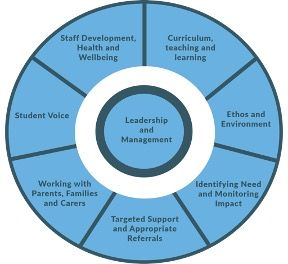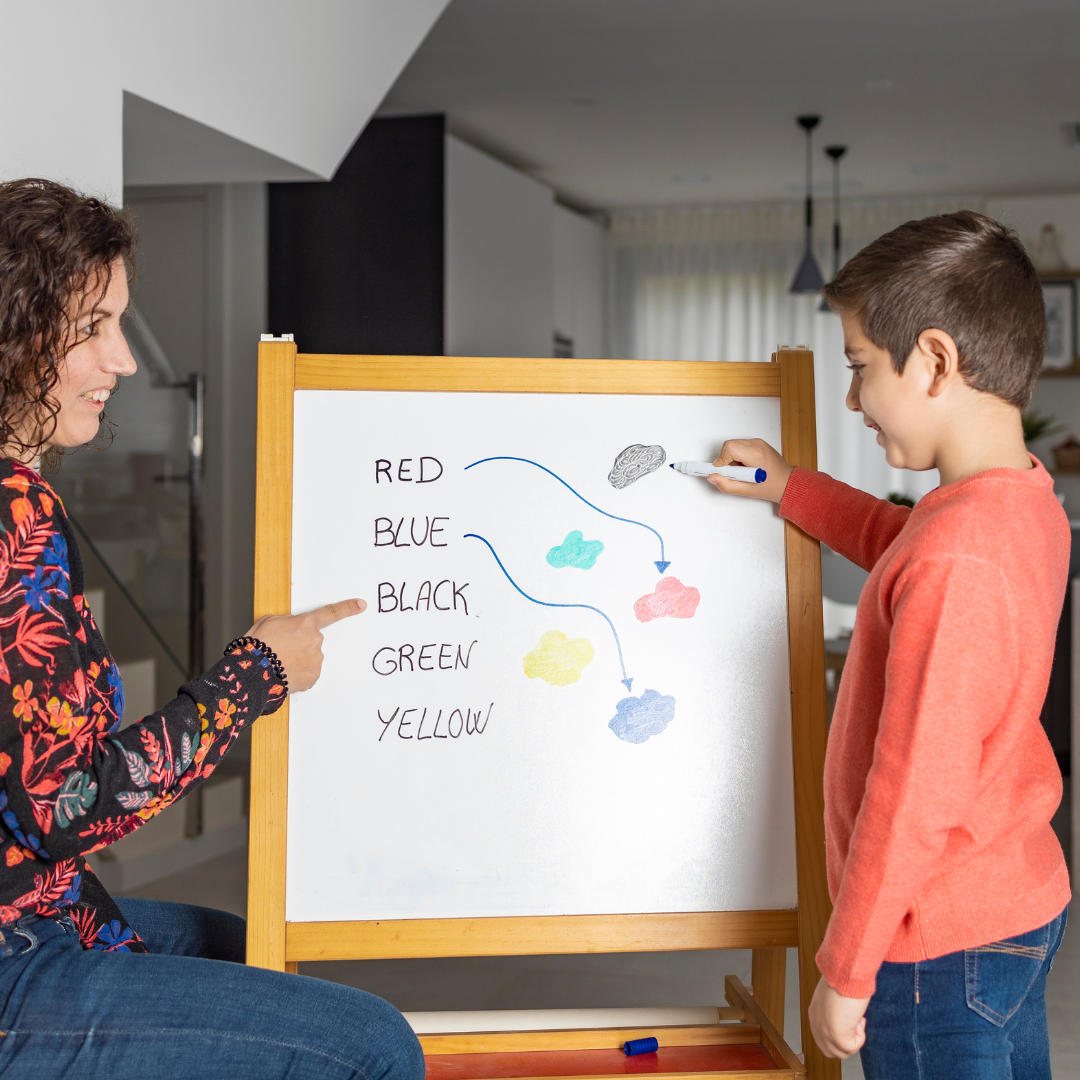Whole school approach to mental health and wellbeing
Senior Mental Health Lead Blog by Emma Buckle

Name:
Emma Buckle
Role:
Assistant Headteacher at Cardinal Wiseman Catholic School in Kingstanding. I have been the Senior Mental Health Lead for 2 years, but have been on the Senior Leadership Team for 6. I lead on both pupil and staff wellbeing across the school; I am a Designated Safeguarding Lead and a passionate History teacher. I am therefore well placed to comment on the current issues/challenges surrounding leading on mental health in the secondary sector.
Identifying Need and Monitoring Impact
As mentioned in my previous blog, I have based my mental health whole school approach on Public Health England’s 8 Principles (see below).

Today I am going to focus on how we, at Cardinal Wiseman Catholic School, identify mental health needs amongst our student population, put in interventions and then monitor impact. The blog will focus specifically on the BREATHE Wellbeing Census for Birmingham Schools and how we have used this survey to inform our practise for the past two years. 2023-24 will be our 3rd year of running the survey.
This quote, taken directly from the BREATHE Education website, summarises how the survey works and why it is an effective tool which can be used to monitor the mental wellbeing of your students: “Pupils completed the Warwick-Edinburgh Mental Wellbeing Scales (WEMWEBS) (Tennant et al., 2007) in secondary schools and the Stirling Children’s Wellbeing Scale (SCWBS) (Liddle & Carter, 2015) in primary schools. Higher scores on both measures indicate better mental wellbeing – both are validated and reliable instruments”. In the latter part of the summer term, you are able to access a report which compares your average wellbeing score to an average for all schools across the Birmingham Local Authority, thus providing you with an effective comparison. Note - I do accept that the data needs to be scrutinised with a degree of caution because we know that mental health/wellbeing is fluid and not a static measure. But in terms of measuring our wellbeing and seeing where we fit into a regional comparison, I was able to learn that we ranked as number 5 out of the 22 secondary schools who took part, thus suggesting the wellbeing of the pupils at Cardinal Wiseman was generally in a good place.
As well as looking at the headline figure for our school I was able to drill down into pupil groupings - i.e. I could see that girls generally marked their wellbeing as lower than boys, which fits in with national trends and the dialogue around Andrew Tate, the ‘Me Too Movement’, misogyny and the well publicised crimes against women. From this we have started working with an educational charity who deliver workshops in school to both genders, tackling some of the misconceptions and stigmas that still exist around men and women, and their perceived roles in society.
There was not a huge difference between our Free School Meal and non-FSM pupils, which was interesting and perhaps unexpected. Persistent Absent pupils marked their wellbeing as lower than their peers, but this was not a surprise given the time PA pupils have away from school and the proactive factors in place in a school setting which can support them with their wellbeing. There were not huge variations according to ethnicity but our ‘White’ cohort did mark their wellbeing as being lower than the other groupings. It is interesting that our ‘Black’ cohort had the second highest wellbeing score because last year the ‘Black Year 9 Girl Cohort’ (our current Year 11s) were noted as having lower wellbeing, and interventions were put in place to try and address this - i.e. I conducted a working group/pupil voice exercise in which I met with a selection of students and asked for specific feedback. From this, a cultural day was added to the school calendar, a question around heritage and ethnicity was added to the Personal Reflection document completed as part of the PSHE (Personal, Social, Health and Economic) programme and the Physical Education department provided a selection of Afro-Caribbean hair products for the girls to use after their swimming lessons. It could be argued that the 2022-23 data suggests these interventions were indeed successful in making this cohort of students feel more connected to the school and therefore improving their wellbeing. The BREATHE survey provided us with the data needed to highlight this issue and then put interventions into place.
Special Educational Needs pupils with cognitive and learning difficulties marked themselves as having lower wellbeing than their non-SEN and SEN peers. The data is anonymised so we are not able to pinpoint specific students but 27 students fell into this category suggesting there is a need. This data has informed my mental health planning this year. In the next blog I will add detail about some of the specific strategies we have adopted.
Next time I will also explore how we have used the ‘letter to self’ activity across the whole school, involving form tutors in the reading of these letters, and thus widening the number of people who support our students directly with their mental health.
Further suggested reading:
- This link will take you to the BREATHE Education webpage where you can find out all about the survey mentioned above. https://breathe-edu.co.uk/census/
Note - The BREATHE survey only applies to Birmingham schools but I would do some research and explore if there are any comparable surveys you could sign up to in your region.




